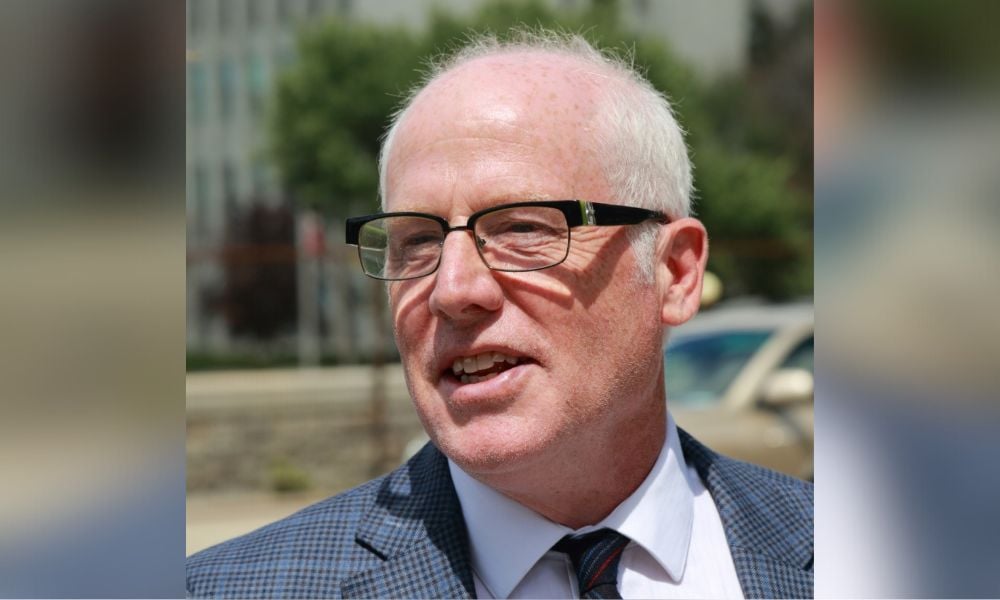
Canada needs more than constitutional rights and human rights codes, says Alex Neve, law prof

Ahead of the anticipated inaugural meeting of the Forum of Ministers on Human Rights, a new report from the Institute for Research on Public Policy (IRPP) calls for the establishment comprehensive framework for implementing international human rights across all levels of government in Canada.
In “Closing the Implementation Gap: Federalism and Respect for International Human Rights in Canada,” author Alex Neve suggests Canada commit to legislative reform in which federal, provincial, and territorial governments implement international human rights laws, while ensuring an enhanced role for Indigenous governments. Neve is a human rights activist, former secretary general of Amnesty International Canada, and adjunct professor of international human rights at the University of Ottawa and Dalhousie law schools.
“There's been a bit of a tendency in Canada to assume that international human rights obligations are all about the rest of the world and somehow doesn't really implicate us,” he says. “After all, we have the Charter of Rights. We have the Canadian Human Rights Act. We have provincial human rights laws.”
“That's obviously not the case. International human rights obligations absolutely do apply to Canada. And it’s not just window dressing, it's actually incredibly important.”
In 2020, federal cabinet ministers met with their provincial and territorial counterparts to discuss their key priorities in relation to Canada’s international human rights obligations. The officials formalized the Forum of Ministers on Human Rights and committed to meet every two years for information sharing, discussion on international human rights obligations, and giving direction to the Senior Officials Committee Responsible for Human Rights and the Continuing Committee of Officials on Human Rights. The IRPP report states that the Forum’s first official meeting is expected to take place this spring, but there is not yet any information available on how it will function.
International human rights obligations have a “crucial role” in Canada addressing its shortcomings, and it must address these issues on the home-front to be able to strengthen the power and authority of international human rights abroad, says Neve.
“Obviously, there's much that is very commendable about our record,” he says. “But I think we all recognize that there are some very notable areas where we fall far short. Certainly at the top of the list would be a range of very serious concerns with respect to the rights of Indigenous peoples – whether that is upholding the land rights of Indigenous peoples, addressing violence against Indigenous women and girls, ensuring equality rights for Indigenous peoples when it comes to child protection or safe water or housing, or addressing a whole series of grave concerns about the mistreatment of Indigenous peoples in the justice and correction systems.”
“If we can show other countries that we get it, that we're serious about those human rights obligations, it goes far in giving our voice more authority when we turn to Venezuela, or Ethiopia, or Sri Lanka, or China, and insist that those countries live up to their international obligations as well.”
But Neve says Canada currently lacks the processes and mechanisms necessary to ensure Canada is putting its international-human-rights commitments into action.
The national framework for international human rights implementation that he proposes would first need to ensure that federal, provincial, and territorial governments make “explicit, unconditional, and public” commitments to govern in a manner consistent with international human rights obligations. Governments can begin incrementally by ensuring that existing laws are interpreted in accordance with these obligations. The process will require law reform, and the paper proposes that governments in Canada consider adopting international human rights implementation legislation that would make their fulfillment a matter of law, rather than discretionary, arbitrary and left to the whims of whoever is governing, he says.
He adds that this initiative must be sufficiently resource backed.
“It does cost money, but it's money that is well worth it because it is money, number one, that addresses injustice and inequality. But it also represents investments in creating the sustainable, just, and inclusive society that is in all of our best interest in the long run.”
The Institute for Research on Public Policy describes itself as an independent, national, bilingual, not-for-profit organization based in Montreal.